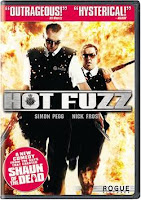
Searching for one’s past, one’s roots is one of those themes that never grows old because there are so many people, so many pasts, so very many roots.
Traveling with Jonathan as he searched for the story behind a simple photograph is thrilling in a quiet and so very controlled way. Especially made so because the land of his adventure is not a new, unexplored land but an old land, a used-up-for-the-most-part land that is as mysterious as one never settled. The land is a mystery because it is so different from America but also because it has been closed to the West for so long and only now slowly opening. And as it slowly opens, Jonathan enters with a guide his age traveling with his grandfather.
There are so many searchers here, both intentional and accidental. By the end of the film there is exploration and discovery all over as so many circles are dawn together. Revelations all over. I guess everything is illuminated.
And because it is simply a fine story with rich characters in a unique setting...it is a really fine film that flows with ease and depth.









